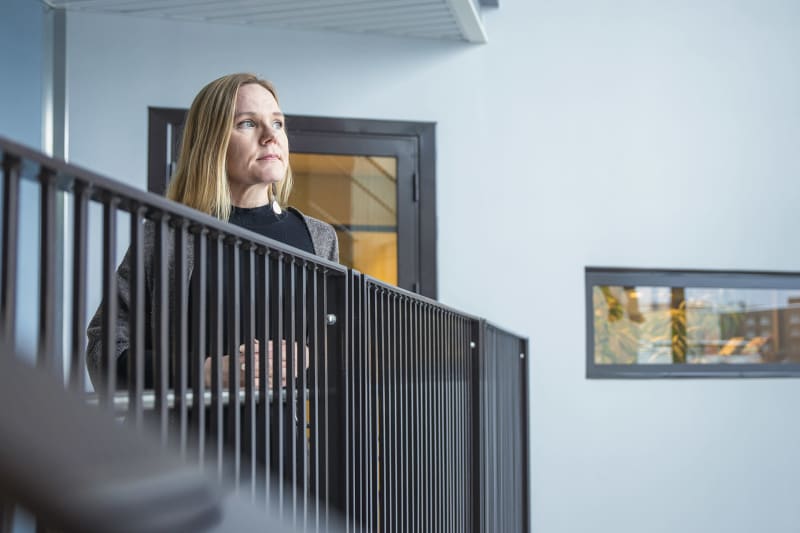Iida Rauma, winner of the Finlandia prize for fiction, says that our culture is child-hating. Commissioner for Children’s Affairs Elina Pekkarinen is on the same lines.

It is also important to talk about how the endless austerity discipline is disciplining the smallest.
Maltreatment of children is not just a human problem experienced by individuals, Pekkarinen points out. It is expensive for the national economy and is seen as a widespread social malaise.
– When we have sick children now, it means that we will have sick adults in the future.
There has been talk before, based on researched information, and in Pekkarinen’s opinion, it has not led to action.
Pekkarinen mentions the school health survey as an example. In that, an equal proportion of respondents reported bullying by school adults as by other schoolchildren. 6–8 percent of the students were bullied by school adults every week.
The only thing that came up in the news was how children in schools are wolves to other children.
– I was really disappointed with how the bullying of adults was acknowledged in the media as children’s mistaken experience of proper guidance by adults. However, it is the case that adults are by no means free from violence, but almost the opposite. The big ones in front, the small ones behind.
See here Iida Rauma’s speech (20-10003823) about violence at school.
All bullying is violence
Bullying sounds like a harmless word. The reality is far from that.
Even years of systematic bullying can have far worse consequences for an individual than a single act of violence, Elina Pekkarinen points out.
Research has shown that bullying can cause the victim both far-reaching mental health problems and somatic ailments.
This can happen especially easily when the bullying does not stay within the walls of the school.
– Focusing on violence and bullying at school is harmful in such a way that bullying often continues throughout life. Adults bully each other, and we adults bully children, Pekkarinen states.
Bullying is violence and it is important to recognize it as a form of violence, whether it is done by children or adults.
– If we stopped talking about bullying, we would stop talking about the subtle torment that it really is; rolling eyes, shutting out, constant nagging and belittling. It is often long-lasting, planned and tormenting directed at one person by a group.
Not for surgeries
The experience of Elina Pekkarinen, Commissioner for Children’s Affairs, is that at the level of words, every politician is willing to invest in children.
The practical actions are different: education is being cut, early childhood education is being cut, social work is under-resourced.
So what should be done? Pekkarinen thinks it would be a good idea to follow Iceland’s model.
– When Iceland sank into the financial crisis in 2008, it was decided there that services or benefits would not be cut for children, families with children or young people. They stayed the course, and thanks to it they recovered to become one of the most prosperous nations in the Nordics.
\”Finland is not child-friendly\”
Children’s nausea is a reflection of adults’ nausea, Pekkarinen sums up. The shaking of fundamentals fuels violence, bullying and distorted power structures.
– I haven’t met a single decision-maker, parent, official, politician or expert who thinks that children are somehow being kidnapped. Fortunately, the bottle talk is over, but it would be high time to focus on the fact that there will continue to be healthy people in Finland.
According to Pekkarinen, the money goes back to repairing the damage instead of taking care of the children’s well-being by keeping the basic structures in order. Budget cuts are paying a heavy price both at the human level and at the level of the national economy.
– The idea of \u200b\u200binvesting in children is really thin in practice. In the last government term, education was cut, even though everyone knows that investing in it is a wise economic and social policy.
According to Pekkarinen, the understaffing of early childhood education is another good bad example.
– We first drive a sector into crisis with our own solutions, and then we wonder what is bothering our children.
In addition to money, Elina Pekkarinen misses seeing the children. In his opinion, Finland is for the time being a society where the smallest should not be seen or heard, only grow up to be eligible tax payers.
– Finland is not the most child-friendly country in the world. When moving with a child, you are always in the wrong place, at the wrong time and too loud. Children must not be heard, seen, or cause trouble and expense. Even the goal of early childhood education seems to be to squeeze children into a pedagogical mold, and not that the children can do well.
It is important to talk about how adults tease
